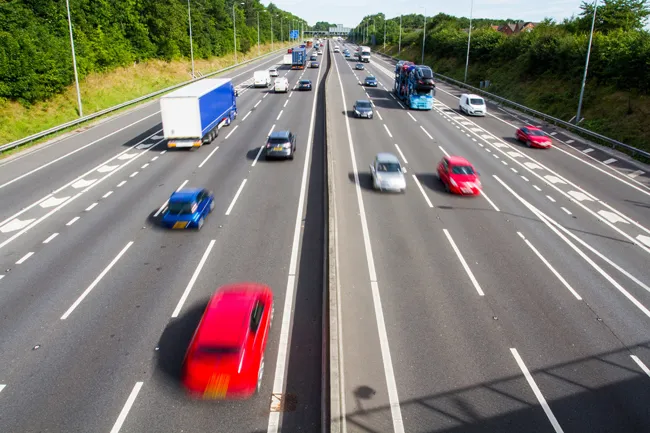The FIA Foundation-coordinated eSafety Challenge, the annual event to promote life-saving eSafety technologies, has received a €1.6 million contribution from the European Commission to support its campaigning activities.
The technologies are crucial for helping drivers make the right decisions in emergency situations and have the potential to save thousands of lives on the roads around the world.
May 14, 2012
Read time: 2 mins
The 1341 FIA Foundation-coordinated 1342 eSafety Challenge, the annual event to promote life-saving eSafety technologies, has received a €1.6 million contribution from the 2465 European Commission to support its campaigning activities.
The technologies are crucial for helping drivers make the right decisions in emergency situations and have the potential to save thousands of lives on the roads around the world.
The key eSafety applications promoted by the eSafety Challenge are electronic stability control (ESC); blind spot monitoring; lane support systems; speed alert; warning and emergency braking systems and adaptive headlights.
The eSafety Challenge is funded by the European Commission, the FIA Foundation and eSafety Aware, and other partners include the FIA, CLEPA, H3B and IMK.
The Challenge focuses on innovative vehicle safety technologies and the potential for lives to be saved on the roads through increased deployment of these technologies. An important obstacle for deployment is the lack of awareness among both policymakers and end users, which is affecting policy support, user expectations and readiness for change.
Some of the world’s best drivers are supporting the eSafety Challenge. Formula One stars Michael Schumacher, Heikki Kovalainen, Robert Kubica, Timo Glock, Giancarlo Fisichella, six-time Rally World Champion Sebastien Loeb, eight-time 24-Hour Le Mans winner Tom Kristensen, and German Touring Car series star Susie Stoddart have all supported eSafety campaigns coordinated by the FIA Foundation by demonstrating eSafety technologies at events throughout Europe.
David Ward, Director General of FIA Foundation, said: “New cars today are much safer than they were 10-15 years ago thanks to improved crash test standards, crumple zones, seatbelts, and air bags which help protect occupants in a crash. But annually at least €1.2 million people are killed in traffic and more than 50 million are injured worldwide. Estimates for ESC alone show that in Europe it could save 4,000 lives and prevent more than 100,000 injuries if fitted to all cars.
The next eSafety Challenge will take place on 13 July 2010 at the UK’s Millbrook vehicle testing centre.
The technologies are crucial for helping drivers make the right decisions in emergency situations and have the potential to save thousands of lives on the roads around the world.
The key eSafety applications promoted by the eSafety Challenge are electronic stability control (ESC); blind spot monitoring; lane support systems; speed alert; warning and emergency braking systems and adaptive headlights.
The eSafety Challenge is funded by the European Commission, the FIA Foundation and eSafety Aware, and other partners include the FIA, CLEPA, H3B and IMK.
The Challenge focuses on innovative vehicle safety technologies and the potential for lives to be saved on the roads through increased deployment of these technologies. An important obstacle for deployment is the lack of awareness among both policymakers and end users, which is affecting policy support, user expectations and readiness for change.
Some of the world’s best drivers are supporting the eSafety Challenge. Formula One stars Michael Schumacher, Heikki Kovalainen, Robert Kubica, Timo Glock, Giancarlo Fisichella, six-time Rally World Champion Sebastien Loeb, eight-time 24-Hour Le Mans winner Tom Kristensen, and German Touring Car series star Susie Stoddart have all supported eSafety campaigns coordinated by the FIA Foundation by demonstrating eSafety technologies at events throughout Europe.
David Ward, Director General of FIA Foundation, said: “New cars today are much safer than they were 10-15 years ago thanks to improved crash test standards, crumple zones, seatbelts, and air bags which help protect occupants in a crash. But annually at least €1.2 million people are killed in traffic and more than 50 million are injured worldwide. Estimates for ESC alone show that in Europe it could save 4,000 lives and prevent more than 100,000 injuries if fitted to all cars.
The next eSafety Challenge will take place on 13 July 2010 at the UK’s Millbrook vehicle testing centre.







